|
I can’t ever remember a time when I haven’t loved school. I LOVE a learning environment. I deeply believe that we are all learners – always and forever.
UW Green Bay has you covered. I had the opportunity to catch up with Nicole Virant, Program Specialist, to learn about what UW Green Bay offers, and what you can expect to find at their booth in the Expo Hall at the 2023 Wisconsin SHRM State Conference. Q1: Tell us a little about yourself. What is your role with UW and what part of your job are you most passionate about? A1: Hello everyone! My name is Nicole Virant and I’m a program specialist with UW-Green Bay. I love helping educate others through our customized training, certificate programs and conferences! Q2: What information can attendees expect to find at the University of Wisconsin – Green Bay booth in the expo hall? A2: The University of Wisconsin-Green Bay booth will offer information on several professional development programs and opportunities, including our brand-new Human Resources Certificate! Our Continuing Education and Community Engagement Division offers various certificate programs as well as customized training development and continuing education units for many industries, so we are excited to share how we can support human resources professionals around Wisconsin! Q3: What is one educational aspect of University of Wisconsin – Green Bay that you think is truly unique? A3: One educational aspect that is unique to our team is our ability to collaborate with organizations on creating exceptional learning opportunities. Our division currently serves 80,000 professionals in continuing education and professional development capacities, but it is our ability to work with organizations to ensure that their T&D needs are met that sets us apart. Q4: What degree and/or certificate programs do you offer that may be of interest to emerging and veteran HR professionals? A4: We are so excited to present our Human Resources Non-Credit Certificate! This program was created with assistance by regional SHRM organizations, taught by regional subject matter experts in various industries, and will offer participants SHRM Recertification Units. All sessions will be offered live online with a focus on collaborative learning and communication. Registration will start soon, with the first sessions starting in February of 2024. Q5: When and how would a company and/or prospective student connect with University of Wisconsin – Green Bay? A5: Anyone who is interested in connecting with us can reach out to [email protected] and we can help get you to the right place! Q6: What are you most looking forward to at this year’s Wisconsin SHRM Conference? A6: We are excited to share our new program and make connections with the people we are here to support! Be sure to connect with Nicole Virant on LinkedIn, and stop by the booth for an introduction and to learn more about how you and/or your organization can benefit for the learning opportunities at UW Green Bay. #WISHRM23 #SMILE23 #HRCommunity #HRShenanigans
0 Comments
It isn’t a secret that a company’s culture can make or break the employee experience. But how do you go from just knowing this on a cursory level to actually taking action? Leadership and HR need to understand their company’s current culture and how to make the changes to help them attract and retain talent, improve employee engagement, and deliver on diversity, equity and inclusion efforts that result in increased satisfaction and productivity, which then translate into increased organizational performance and revenue growth. No longer can organizations hide behind the value statements they slapped on the wall, make an announcement “We’re awesome!” and expect it to actually be true. On the contrary, employees want more. This was most notable in 2021 and 2022 with the (dare I say) Great Resignation. (I actually refer to it as the Great Realization, but I digress.)
As HR professionals, we know culture is important. If you’re looking for support to help your organization build and sustain an awesome culture, make sure you register for the 2023 Wisconsin State SHRM Conference (October 11-13 at the Kalahari in The Dells). Randal Weidenaar, Founder and CEO of VP Culture will have an exhibitor’s booth in the Expo Hall. Additionally, he’ll be presenting twice on Thursday, October 12th:
Both sessions are available in person and virtually. For more information, visit Conference At A Glance. Here you can filter sessions by speaker, and then select the day. Read on for more information about Randal and VP Culture: Q1: Tell us a little about yourself and your role with VP Culture. What led you to VP Culture, and which part of your job are you most passionate about? A1: I'm Randal Weidenaar, the founder and CEO of VP Culture. As the founder, I am most passionate about what VP Culture does for the leaders and teams that I bring it to. Valuing people will transform a culture from the inside out. Q2: How does VP Culture serve its customers? A2: We serve our customers by establishing training for teams and leaders of a business or company. The VP Culture School of Leadership is available in person and through our website via video courses. I've also written a workbook to accompany the VP Culture training course. Q3: What service does VP Culture offer that you think is truly unique? A3: Everyone knows that a company's culture is top priority. Toxic company culture leads to huge turnover. Bad for business! VP Culture's training is unique because it is based on neuroscience, scientific study and research from the past 40 years. Q4: How do you define “culture”, and why is this so important to organizations? A4: Culture is what happens between team members, leaders, and each person that interacts within your company. It's the currency of your organization. It's living and dynamic. Q5: What is the connection between culture and business growth? A5: Everyone wants to know the ROI. Here are the facts: Employee Engagement leads to 21% higher production and 22% higher profits, according to Gallup Research. According to an MIT Sloan article “High-Purpose Cultures see substantially more significant results. They had an average of 11.5% on stock returns annually over 17 years, compared with an overall market average of 6.4%. They also had employee turnover rates approximately 50% lower than competitors in their own industries. With average turnover costs estimated at 90% to 200% of the exiting employee’s base salary, these lower rates result in significant cost savings as well as knowledge retention within the organization.” Q6: What information can attendees expect to find at the VP Culture booth in the expo hall? A6: Booth visitors will find information about our training programs. I will also be presenting on two topics Thursday: Personality Science (6:30) and Psychological Safety (10:15) so would love to engage anyone on how they were impacted by these presentations. I'll also have copies of my workbook available. Q7: What is the best way for HR pros and leaders to connect with you and VP Culture? A7: Feel free to come and talk to me after the sessions on Thursday. I love to engage with HR professionals! They are in the trenches. After the conference, here's how best to reach me:
Q8: What are you most looking forward to at this year’s Wisconsin State SHRM Conference? A8: I've spoken all over the nation, and I can honestly say the Wisconsin State SHRM is the most well-run of all I have attended. So it's hard to choose, but if I had to, I would say engaging with the people on all levels. #WISHRM23 #SMILE23 #HRCommunity #HRShenanigans I am passionate about continuous learning and professional development. I prioritize and protect it. While I strongly believe that each person should own their own career, it’s also important for leaders and organizations to provide professional development support if they want to retain top talent. Let’s remember that development isn’t always a straight vertical path. Providing employees with the opportunity to grow in different ways – in different functions and roles – not only supports the development of high-potential employees who may be considered key talent and/or a successor, but it may be one of the missing links to your retention strategy. People want to be developed. And if you don’t offer opportunities, another organization will.
I’m so excited to welcome Taura Prosek back to WISHRM23! Last year, she presented “Empower Employees to Lead Their Careers” (you can read the interview here). This year, her session “6 Steps to Building a Robust Career Development Solution” addresses the organizational need to develop a solution that supports internal mobility and embeds development into its talent strategies. Q1: Tell us a little about yourself and your role with Stewart Leadership. What led you to Stewart Leadership, and which part of your job are you most passionate about? A1: My role at Stewart Leadership primarily focuses on solutions and sales where I build new and strengthen current client relationships. What drew me to Stewart Leadership over 7 years ago was their partnership approach tailoring to the unique needs of their clients. I am also an executive coach and career development strategist so do quite a bit of work in these areas. I’ve been passionate about career development since my role as Manager, Early Talent, over two decades ago when I facilitated hundreds of career coaching conversations. When I’m asked, “Why would we provide career development support to our employees? Aren’t we preparing them to leave?” I confidently reply, “No, you are preparing them to stay!” I LOVE this work and view it as one of the most important benefits an organization can provide their employees today, which was the inspiration behind this presentation. Q2: Why is building a robust career development solution so important? A2: People often leave organizations because they don’t see options to grow and develop if they stay. Recent stats note that as high as 70% of employees say they would be forced to leave to advance their careers. This is crazy! When an organization supports internal mobility and combines this with offering career development programming and support, amazing things can happen. The benefits include retention, engagement, agility, improved employer brand, better succession planning, and more. Q3: You mentioned that recent studies identified a gap in career development capabilities among internal talent development professionals. What is the gap, and how can organizations begin to close that gap? A3: Gone are the days of the typical career path, thus, HR professionals must play a facilitator role in supporting the employee and their manager in a collaborative approach to career planning. HR professionals may not be traditionally skilled in the areas of career coaching, career goal setting, internal resume building, conducting skill gap analysis, interview preparation and skill practice, event networking strategies, and more. Over 24,000 talent development professionals have assessed their capabilities within the Talent Development Capability Model™ and “career and leadership development” is identified in the bottom five of the total list of 23 capabilities. So, at a time when HR professionals must play a more active role in the career space, it continues to be identified as a skill-set area that needs to be strengthened. This gap can be improved through aligning career development efforts with current talent systems and processes and upskilling HR professionals through workshops, certifications, and resources in all areas related to career. Q4: For organizations that have never had a career development solution, where should they start and how much of their budget do they need dedicated for this initiative? How can HR professionals support a career development initiative in their organizations? A4: Although HR professionals may lead the career development strategy internally, each employee is ultimately responsible for leading and owning their own career decisions. They simply need the skills and internal sponsorship to do this effectively. People leaders are responsible for having the important and frequent career conversations that employees are demanding today. Stewart Leadership offers a workbook called “Lead Your Career: A Step-by-Step Workbook for Achieving Professional Fulfillment and Helping Others Do the Same” for only $35 per copy. Although it is written for the individual employee to career plan for themselves, it doubles as a guide to help anyone who facilitates career conversations. The final chapter is focused on helping people leaders prepare for and hold those authentic career conversations that employees crave. An easy first step is to identify a group of HR professionals who want to strengthen their career development skills to participate in a pilot Lead Your Career workshop with a focus on their own careers. This is a low-risk and economical way to gauge interest for expansion across the organization and there is no better way to learn a topic than by experiencing it first-hand as a user of it. Q5: What can participants expect during your session, and is there anything that attendees can or should prepare ahead of time to maximize the discussion? A5: Six steps will be outlined as a roadmap to follow as career development is prioritized and integrated into an organization. To prepare in advance for this session, participants can informally pulse fellow coworkers with the question, “How can we better support you and your career here?” Think about a recent role where there were internal and external candidates on the slate for consideration. Were your internal candidates as prepared as external? When an internal candidate doesn’t interview well and an external gets the role, consider the message this sends and the cost that results in the short-term and long-term. Q6: What is one thing you hope attendees of your session will take back to their workplaces? A6: Career development is no longer an “extra” type of benefit. It’s expected. As a first step, I hope that when attendees go back to their workplaces, they prioritize gathering the voices of their key stakeholder groups. What are employees and people leaders saying about career development and internal mobility? What are key performance indicators telling you? Conduct a baseline analysis to figure out where you are today so you can put a plan together that supports helping people to grow and STAY in the future! Q7: What is the best way for attendees to connect with you and Stewart Leadership? A7: Please visit leadyourcareer.com and stewartleadership.com for more information about our career development solutions and services. Connect with me on LinkedIn at linkedin.com/in/tauraprosek/, and email me directly at [email protected]. Q8: What are you most looking forward to at this year’s Wisconsin State SHRM Conference? A8: The in-person connection at this conference can’t be beaten. This conference is filled with people buzzing in the gathering spaces and the energy is contagious! See you all there! Taura’s session is offered virtually and in person on Thursday, October 12th from 10:15-11:30am. #WISHRM23 #SMILE23 #HRCommunity #HRShenanigans I'm so excited to highlight Restaino & Associates as one of the 2023 Wisconsin State SHRM Conference vendors. When I was relocating my family (husband, 2 young children and dog) from Colorado to Wisconsin in late 2018, I was referred to Restaino by a colleague. I reached out, and was immediately met with such an enthusiastic welcome. I was sent a package that included a ton of materials about the city, surrounding activities and communities, and places to eat, shop, and explore. Restaino helped with connecting me to reputable movers for the entire pack & ship experience, and as well as to one of their realtors (shout out to Matt Silvern) to assist with temporary housing and to help us with home buying locally. I highly recommend Restaino & Associates to all of my friends and colleagues who are looking to sell/purchase a home, and for those looking to relocate for business or personal reasons.
I'm thrilled to introduce you to Gail Johnson, Corporate Relocation Manager and Concierge Director: Q1: What information can attendees expect to find at the Restaino & Associates, Relocation booth in the expo hall? A1: You will be greeted by Restaino Relocation Specialists, Nayda, Gail, and Kate who are vital resources for you when hiring talent from outside the community. They are happy to answer any of your questions. Pick- up brochures on the state parks, biking trails, farmers markets and more! Plus, sign- up to win a $50 Amazon card, our famous chocolate suckers, pens, Wisconsin cookie cutters, and more! Q2. You’ve been with Restaino for many years now. What drew you to this company, and what has kept you here for so long? A2: 14 years! What drew me to Restaino Relocation- they value people! They set you up with the tools and resources you need, along with flexibility of work-life mix. The people we have had the privilege to serve over the years has made my career with Restaino purposeful and fulfilling. Helping people settle into the community, to call it home, provide connections to anchor them, and acclimate them to the community is priceless to them. What’s kept me here for so long? The wonderful team I work with, recruiters, HR team, and the clients we serve. The trust they place in us is valued and we want to deliver on what we say we can provide. Q3. What is one service that Restaino & Associates offers that you think is truly special? A3: We tailor our assistance to our clients' interests and needs. It’s not a cookie-cutter approach and it’s not a script that we read. We truly care about the people we assist in transition and understand the decisions that they are striving to make. Plus, with a team of three, we are available seven days a week. One service we added several years ago has helped so many transferees is our assistance to their spouse/ partner in their search to find a career in our community. We have a large network of recruiters and HR Associates to share their resumes which is a win- win for both people. Kyra, you were a joy to work with! Your excitement to move in and get acquainted with the community was wonderful! It has been nice getting to know you and watch you flourish. The Madison community was truly lucky to have you bring your talents and warm personality to the community. (**All the feels.**) Q4. How do you personalize the relocation experience? A4: Taking the time to host a conversation to learn of your interests and needs, and start the process from what matters to you throughout the entire process and settling in. From setting up your tour, researching housing (whether rental or home finding), school information / introductions, moving companies, mailing a welcome box and so much more. Q5. When and how would a company connect with Restaino for services? A5: We recommend early in the interview process, as many people exploring a position haven’t been to the area and may not know all the amenities we offer: green space, the arts, lakes, parks, farmers markets, and so much more. If you would like to learn more about Restaino Relocation and how they can assist you or your company provide personalized relocation and home buying (or selling) experience, start the conversation by emailing: gail@restainohomes.com. Gail Johnson, Corporate Relocation Manager and Concierge Director Website: MadisonRelocation.com or Restainorelocation.com LinkedIn: Gail Johnson #WISHRM23 #SMILE23 #HR #HRCommunity #HRShenanigans I met Sarah in 2019 following her session at the SHRM Annual Conference, and we ended up talking for quite a while. She has been one of my all-time favorite humans since. I was so excited to learn that she doesn’t have just one, but TWO sessions at the upcoming 2023 SHRM Annual Conference in Las Vegas. I had the great honor of connecting with Sarah for a virtual interview to discuss her background and little bit about her sessions, as well as a lightening round to get to know Sarah a bit personally. We spoke for over an hour, with a few tangents. Here are the details about how to get in touch with Sarah, information about her book and podcast, as well as both of her sessions, along with the highlights from our conversation. (The full interview video can be found here.) 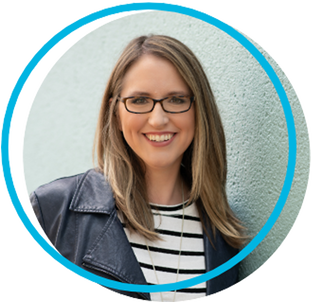 Sarah Noll Wilson, CEO / Chief Edge Officer Website: https://sarahnollwilson.com/ LinkedIn: Sarah Noll Wilson Twitter: @SarahNollWilson Instagram: @SarahNollWilson Podcast: Conversations On Conversations Book: Don't Feed the Elephants Pre-conference Workshop: Building Powerful Teams by Overcoming Avoidance and Freeing the Elephants in the Room In-person – Saturday, June 10th, 1-5pm. Concurrent session: There’s No Neutral in Trust: Three Key Strategies for Forward Movement In Person, Monday, June 12th, 1:30-2:30pm. Book signing: Monday, June 12, 2:40-3pm – by the SHRM bookstore Q: I’m so excited to connect to talk about your upcoming sessions at the 2023 SHRM Annual Conference in Vegas! Before we dig too deep, tell us a little about yourself and how you got into leadership development and coaching. A: The short short story of the long story is, I was a theater major who moved to Des Moines to chase a boy. That worked out. In my theater background one of my degrees in addition to performance was theater education which wasn't teaching theater but using theater as an educational tool. So that was sort of my entry point into training. Over the years I just became really passionate and interested in that dynamic between leaders and team members. I also got my master's in leadership development. Then went on to lead the leadership development efforts at [an insurance company] where we got to do some really cool and progressive stuff. I started a company just seeing if I could do it. And now it's exciting to be past year 3 when most companies fail. We're passionate about how to make work work better for humans. Q: You have often said that powerful leadership starts with curiosity. Tell me more about that. A: First let's define curiosity. For me, it's the belief in the understanding that there's always things you don't know. There's always things you don't know about a situation. There's always things you don't know about another person, and there's always things you don't know about yourself. If you look at the foundations of emotional intelligence, I can't be self-aware without some curiosity. I can't regulate, I can't be socially aware. I can't adjust and adapt to people. The thing that I always say is be curious enough to ask and courageous enough to listen. Q: Let’s talk about your preconference workshop. You’ll have 4 hours with attendees… What can they expect? A: Dr. Teresa Peterson and I will be leading them through conversations, exercises and explorations about how they can stop feeding the elephants in their organization. It's based off of my book, Don't Feed the Elephants. And we're really going to do a deep dive into how do we understand our own avoidance, how do we start to understand, appreciate, acknowledge, assess other people's avoidance, and then what does it look like for us to step in and speak and stand with courage? What does it look like for us to help other people do the same? And also when is it okay to not? Q: In your book, you talk about various types of elephants: avoidaphants, deflectaphants, etc. Tell us more about the avoidaphant. A: One of the things that I became aware of when I was just really interested in learning about how to move a culture from avoidance to having conversations, was redefining this idea of the elephant in the room. And the elephant in the room often is referred to as a person, right? They're pointing at the boss and saying, “Sir, we got an elephant in the room, and that person might be causing conflict.” And they may be an actual barrier to success, that's true. But the elephant actually gets created when we avoid acknowledging or addressing it. We have to realize, the moment we don't speak up is the birth of the elephant. And so that's just a little bit of a reframing. Q: You have a concurrent session on Monday: There’s No Neutral in Trust: Three Key Strategies for Forward Movement. What do you mean by “there’s no neutral in trust”?” A: One of the things that we're really passionate about is helping people think about how to assess trust differently and what they need to do to close that gap. The point of the title is literally every single interaction you have with somebody, even if it's somebody you're only going to meet once, you're either increasing trust, you're sustaining trust, or you're decreasing trust. There's no neutral. You may think it's neutral because you're actually just sustaining whatever level of trust you have, but the reality is, every single interaction, whether it's an e-mail, whether it's walking past somebody in the hallway, whether that is talking to them in the break room, sending them a Slack or Teams message…. You're having some kind of impact on that trust, whether you realize it or not. And the thing that we want to accomplish on Monday is 1) to help people think about that a little bit more deeply, but then 2) to give some really specific tools, because again, we're big believers that theory is great. Tools are better. Q: What do you hope the attendees of your sessions will bring back to their workplaces? A: I want people to leave with more confidence and how they can help coach other people, having difficult conversations and thinking about difficult moments, how to step into that courage and also to do that for themselves. Sometimes I think we don't know where to start. And it's easy enough to say, "Well, you just need to have the conversation," but what does that look like? How do we plan recovery when we know we're going to be having a difficult conversation? I want people to feel like they have more tools to really engage people in different kinds of conversations, to help them move from avoidance to a more intentional choice of showing up. I want people to leave 1) having some reflection of I probably don't think about my relationships as much as I need to, and 2) we as an organization don't either. The reality is there's a limited number of time and hours we have and the impact we can make is finite. We will be showing you kind of behind the scenes: This is how we approach this, these are the actual tools, here are the handouts we use. My hope is that we can give them some tools to feel really confident. Lighting Round! Q: What book have your read in the last 2 years that was super powerful for you? A: Color of Emotional Intelligence, by Farah Harris and Platonic, by Marisa Franco, PhD Q: Worst advice you were ever given? A: People won’t take you seriously if you don’t wear a suit. Q: Call, text, email, or in-person? A: Depends. And an option that’s not on there… As you know, I love a good voice note back and forth. Q: Favorite show to binge watch? A: Futurama and Call the Midwife Q: What song have you most recently learned on the accordion? A: Trying to memorize My Wild Irish Rose. Golden Slippers is without question my favorite one to play. Q: When it comes to snacks: Sweet, savory, or salty? A: Either salty or sweet and salty – like salted chocolate caramel or chips with dip. It’s about the dip. It’s not about the chip. Q: Late night or early mornings? A: Late night without question. Except Saturdays – I’m up and raring to go! Sarah and her work have had an incredible influence on me personally and professionally. I am so excited to see her in person in 4 days! I encourage you to add her sessions to your conference schedule, and make a point to introduce yourself. I am confident that she will provide you with tips that will help you have profound impact on building relationships and trust in your organization.
For more information about the #SHRM23 Annual Conference in Las Vegas on June 11-14, 2023, visit: annual.shrm.org/ It's not too late to register! Hope to see you there. I often hear from the leaders and team members I support that they don't have time to dedicate to their development. So many tight timelines, looming deadlines, critical work that needs to be done urgently.... Or they tell me that their manager/leader doesn't talk to them about their development and so nothing happens. Or that due to attrition or re-organizations, they have had X# of manager in X# of months and every time there is a change in managers, it feels like a setback in their career.
One of the biggest hurdles to career development is just getting started. There are a ton of resources to help you. And if you need some additional support, encouragement, or inspiration, I invite you to connect with me. I will help you. I won't do the hard work for you. I can at least give you a nudge in the right direction, and you can leverage that momentum. Everyone deserves opportunities to learn and grow. Foundationally, it starts with you. #HRCommunity #CareerDevelopment #Growth #leadership #HR #HRShenanigans Dr. Ernest Wayde: Artificial Intelligence for HR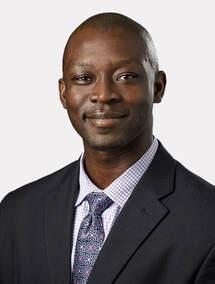 Technology. AI. Data. Yikes! The field of HR is exquisitely different than it was 22+ years ago when I began my career. At that time, most processes were still manual. People printed job applications and mailed or faxed them in. There wasn’t an easy way to collect people metrics because robust information systems didn’t exist. If data was collected at all, it was also manual. I’m pretty sure that we were still using carbon copy forms in some cases. Fast forward to now, the business expects HR professionals to report on people metrics and provide insights that will help leaders make better decisions. Almost always the business wants to cut HR overhead – do more with less – while becoming a stronger strategic partner. This usually includes finding ways to make our function more efficient, automated, and data-driven. Enter Artificial Intelligence (AI). Any time there is conversation around how HR can become better informed, more efficient, and help support higher engagement (and lower turnover), my ears perk up. If we want to be seen as the critical strategic partner to business leaders, we need to embrace AI – not just to be data-savvy, but also to identify innovative applications to improve the employee (and candidate) experience. Ernest Wayde, Ph.D., M.I.S. shares more about his session, Artificial Intelligence for HR: Q1) You have an interesting background! Tell us more about your training and education, and how that led you to the work you do today. I am a life-long learner and have always enjoyed learning different things and integrating them together. In college, I double majored in psychology and computer science which, in my view, was a perfect foundation for my early interest in Artificial Intelligence. My first career was in the Information Technology field where I worked my way from programming to business systems analysis and project management. This experience taught me a lot about data and business technologies. It also gave me some insights into the interaction between people and technology in the workplace. I was fortunate enough to attend graduate school at the University of Alabama where I completed doctorate programs in both clinical psychology and cognitive psychology. Conducting human subjects research taught me a lot about how to glean information from data and about the importance of ethics and security when working with human-related data. My clinical work was an amazing experience that allowed me to work with and help people with a wide spectrum of behaviors and mental health. I was privileged to work with Veterans and staff in the Department of Veterans affairs (VA). I worked as a clinical psychologist and then transitioned to organizational work after completing a fellowship in Organization Development (OD). During this time, I helped develop executive leaders and teams, and provided change management consultation. I also completed a master's degree at Wright State University in Information Systems (MIS). I got a chance to use my MIS training while helping staff at the VA implement a new electronic health record system. Nowadays, putting all these experiences together helps me bring a unique perspective as I partner with business to help them achieve success. Q2) In the session description, you mention that AI sometimes causes apprehension and confusion for professionals. Why do you think HR professionals are reluctant? Like every other industry, when it comes you AI, the greatest concern people have is about the impact on their jobs. What will AI do to our jobs? Frankly, that is a reasonable concern that can cause fear and provide anyone with pause. This fear is well documented. Research shows that a significant percent of people think they will be replaced by machines soon. That notion is further aggravated in entertainment where we see fictional examples of this happening. Add to this that depictions of AI in these fictional depictions are greatly exaggerated, information in the media can be confusing, and it's no wonder we are all a bit apprehensive about AI. Q3) How do you see AI enhancing the work of HR? AI can be a fantastic tool for HR. At the heart of it, it is really a time-saving tool. For example, Chatbots are the most popular AI-based application used by HR departments globally. This is a great time saving tool because it allows you to answer questions from potential applicants as well as current staff instantaneously, 24/7, in multiple languages and channels without human intervention. In fact, research has shown that HRs with mature AI applications can gain up to a day a week in time savings due to the use of AI applications. What could you do with an extra day of time every week? Q4) Are there any areas of HR that you don’t think AI could enhance? Why or why not? When a big part of your work is dealing with people, the types and strengths of relationships you have with those people is critical. But, when you are overburdened doing mundane tasks, it's hard to invest in relationship building. So, while AI can help you save time and allow you to focus your attention on the relational aspects of HR, it can't develop those relationships for you. At least, not yet. Q5) What are some of the biggest obstacles to implementing AI technologies when working with HR professionals? A few years ago, Gartner predicted 85% of AI implementations would fail, highlighting the need for a thoughtful and strategic approach to AI implementation. Start by taking a hard look at your organization's people and culture to see how previous technology changes have been received. Have people embraced and utilized the technology to its full potential or have they been resistant and slow to adopt, using only a fraction of the technology's potential? A lot of these issues speak to the importance of change management. Secondly, because of the way machine learning works, a lot of AI applications are heavily reliant on data. How does your HR collect data? Do you have a mature data management process? Do you have enough data for AI to use? It is important to think through these questions. Think about how to best prepare your people and adapt your processes before you get to the actual implementation. This will significantly increase your chances of a successful implementation that realizes the benefits of AI. Q6) How do you go about overcoming these challenges? An effective change management strategy can help prep your people for an AI implementation, including increasing the speed of adoption and ultimate utilization of the AI application. Start by getting buy-in from leadership. Then, help your leaders to be effective sponsors by advocating, providing resources, and championing the use of the AI platform. It is critical to address employee concerns, reduce fear, and build desire for the AI application in advance of the actual implementation. If your organization is not collecting data, you should start there. Work with your IT department to make sure you are collecting and safely storing work related data about your employees and their work activities. Make sure you are collecting data in a responsible, secure, and ethical way. To do this well, you should be working closely with your IT department and establish a data governance framework to help you collect and use data responsibly and ethically. Q7) What is one thing you hope attendees of your session will take back to their workplaces? There is so much confusing information in the media about AI making it easy to get confused and afraid of it. Hopefully, this session will help people gain a basic understanding of AI and how it can be used to help save time and support them in their daily HR activities. Artificial Intelligence for HR is offered on Thursday, October 13, from 2:30pm to 3:35pm - both virtually and in-person. Be sure to add this informative session to your calendar in your conference app!
About Dr. Wayde: President of Wayde Consulting, LLC, Dr. Ernest Wayde, brings a diverse and extensive background in healthcare and technology from both the public and private sectors. With his training and experience in organizational development working for the Department of Veterans Affairs, Dr. Wayde has provided coaching and consulting to executive leaders in healthcare across the United States. As a Prosci-trained Change Management practitioner and trainer, he has firsthand experience leading change on a broad scale and can speak directly to the challenges involved. Dr. Wayde is a former Director of Data Management and evaluation, holds a master’s degree in Information Systems, and has numerous certifications in Artificial Intelligence, including a certificate from the MIT Sloan School of Management. With his passion for people, processes, and technology, Dr. Wayde strives to help organizations achieve business success through the successful integration of these critical business elements. Website: Wayde Consulting LinkedIn: Ernest Wayde, Ph.D., M.I.S. #WISHRM22 #SMILE #HR #HRCommunity #HRShenanigans #AI Greg Hawks: Navigate Workplace Rapids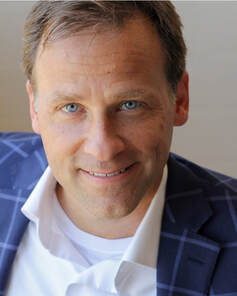 I had the great privilege to meet Greg Hawks in 2016 at the SHRM Annual Conference in Washington D.C.. We happened to both be mingling at a pub with a pile of other conference attendees. Of course, shenanigators have a way of finding each other.... I immediately knew we'd be buddies. Greg is so fun, ridiculously energetic, and loves people! A kindred spirit! While we had been connected for many years (6 to be exact), I finally had the opportunity to hear him speak this past June at the 2022 SHRM Annual Conference – a 7am morning session. When Greg is on stage, he’s in his sweet spot. He will make you laugh, for certain. He will also make you think. He has a gift of analogies. When I learned that he would be speaking at the WISHRM Conference, I knew I wouldn't miss it! If you’re connected with Greg on social media, you’ve probably seen his famous half-face airplane selfies, early morning run selfies, pictures of very happy people winning yellow rafts, and his weekly Instigator letters. He is definitely someone you need to meet in person. Watch our very short Zoom interview to get a glimpse of what you can expect from his morning opening keynote. **Please excuse the audio spasms and frozen video. Technology, while awesome, isn't always perfect. Be sure to join us in person or virtually for Greg’s session: Navigate Workplace Rapids on Thursday, October 13, from 8am-9:15am. He will get you energized and ready to love obstacles!
About Greg: As a Corporate Culture Specialist, Greg shapes environments where everyone gets to contribute their best daily! For two decades he has mentored leaders, developed teams, crafted culture and and empowered employees. As a Keynote Speaker, he is an enthusiastic character. His style, wit and energy consistently capture the attention and imagination of audiences. His forward thinking contributes fresh perspectives that work. He’s annoyingly optimistic, contagiously energetic and slightly mischievous. People tend to like him. As a Virtual Conference Producer, he shapes an entirely different landscape. Designing the days, providing production, hosting the event, working with speakers and vendors - Greg fashions turn-key experiences that produce a virtual conference rivaling in-person gatherings! Website: www.hawksagency.com Twitter: @greg_hawks LinkedIn: Greg Hawks #WISHRM22 #SMILE #HRCommunity #HRShenanigans Conflict. The word alone can cause people the shivers. We all know that where there are people, there is conflict. It has always been a little baffling to me why so many see conflict is a negative thing. Certainly, it can be. However, conflict can also be very healthy if it’s handled well. Building conflict management skills is important for HR professionals as we help our teams successfully meet the priorities of the business, and ensure that conflict doesn’t disrupt progress. I strongly believe that when teams are able to navigate conflict well, the team builds strength, trust, communication, and innovation. I had the opportunity to connect with Anna Nielson to talk about her session “Conflict Capable Leadership” at the Wisconsin State SHRM Conference in October. 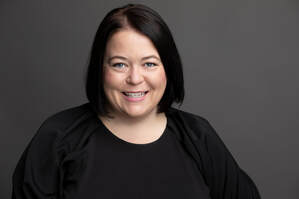 Q1) Tell us more about you and what inspired you to dedicate yourself to building conflict capable leaders. I grew up in a family that didn't show me how to handle conflict. In fact, it was just ignored and denied. It made me feel alone and stuck and I always wished it could be different. When I became a mediator and conflict resolution practitioner, I was inspired by all of the possibilities of having skills in approaching and handling conflict created. As I have navigated my professional life, I have seen conflict be the greatest barrier to people reaching and exceeding their goals. The problem is that people don't know that they need explicit plans/policies/guidelines for how people in their organizations should approach conflict. They have processes in place for almost everything, except for conflict. We put people in a giant fishbowl together and expect them to figure it out. The stakes are high because their behavior is tied to their paycheck. I saw this gap and knew I could create something special to solve the problem. I believe conflict capabilities are the greatest tool for success in organizations and I want to inspire others to believe it, too. Q2) You mentioned in the session description that shifting your mindset about conflict is a powerful leadership tool. What shift needs to take place? When I meet people, they often only see conflict as one-dimensional. For them, it's terrifying. The shift I help people explore is learning to see conflict in all new ways by gaining understanding about what they hope to achieve from showing up to hard conversations. Q3) Why do you think leaders fear conflict? People are scared of it because they are unprepared and unsure of what is expected of them when conflict happens. The stakes are high when your behavior is tied to your paycheck, and it's scary to take risks. Q4) What are some of the ways that HR can help support creating conflict capable leadership teams? First, HR professionals can lead the way in creating conflict capable teams and organizations by asking two important questions:
Next, they can work on a plan for creating a culture where the expectations about conflict are clear. This means that everyone knows exactly what the culture expects them to do when conflict arises including what to say and how to say it. This requires training employees, and modeling, reinforcing and rewarding these actions. Q5) What is one thing you hope attendees of your session will take back to their workplaces? I want them to take back a sense of curiosity about conflict. By giving yourself space to experience more than just fear, you are creating endless options for yourself and the people around you. Please be sure to add Conflict Capable Leadership to your Wisconsin SHRM Conference session line-up! This session is offered virtually and in-person on Thursday, October 13, 2022 at 12:45PM to 2:00PM (CST).
About Anna: Anne Nielson is the founder and CEO of Conflict Capable Solutions. Her superpower is creating Conflict Capable leaders, teams, and organizations to drive innovation and maximize growth. She's an experienced civil mediator, conflict resolution consultant, Restorative HR practitioner, and facilitator. Anna holds a bachelor’s degree in Communication and Diversity Studies from Metropolitan State University, and a master’s degree in Advocacy and Political Leadership from the University of Minnesota, Duluth. #WISHRM #WISHRM22 #SMILE #HRBreakingThrough #PowerofthePast #ForceoftheFuture WISHRM Conference 2022: Speaker Interview: Taura Prosek - Empower Employees to Lead Their Careers9/19/2022 The Wisconsin State SHRM Conference is back with an amazing line-up of keynotes, sessions and networking opportunities – which, of course, means fun and shenanigans. (Oh, my heart!) I am a geek for HR conferences! And I love to peruse the breakouts to find the sessions that resonate with me and my organization – with the hopes of bringing back some new ideas and/or information to my team, or for my own professional and personal growth. Continuous learning and professional development is incredibly important to me. I prioritize and protect it. I cannot tell you how many people I interact with daily who tell me they either don’t have time for development, or their manager/leader hasn’t supported (typically meaning that their manager hasn't approached them for career conversation). My advice has always been to own your career. YOU are in the driver’s seat. Everyone else is a co-pilot (or backset driver – yikes). Taura Prosek’s session, Empower Employees to Lead Their Careers, immediately stood out to me. I feel like we’re kindred spirits, and I had to connect with her to learn more about her, her passion, and her WISHRM22 session!  Q1: How did you get into executive coaching? In 2013, I left the corporate world after 20 years to become the director of career management for the Wisconsin School of Business evening and executive MBA programs. 60% of my role was leadership and career coaching so I began a formal accreditation program to become a certified career coach as well as executive coach with the International Coaching Federation. Although there is an element of coaching throughout my entire career, it is the past decade where it’s been a focus for me having coached thousands of leaders in all areas of career and leadership. It’s been my most fulfilling role to date! Q2: Why are you so passionate about empowering others to lead and own their careers? I can’t count the times when someone would say to me, “I think I need a change” and what they meant by that was that they were going to start a job search externally. The root of this was likely that they outgrew their role and needed the next challenge. So often they weren’t taking a thoughtful and holistic view to this decision and instead, running away from something versus running towards something. After working through the Lead Your Career step by step process, often this decision resulted in an internal job change that aligned with their interests, skills, and business need versus leaving their organization that knows them and trusts them. We spend a lot of time “at work” and to enjoy what we do, to feel valued, challenged, and energized is what it’s all about. Everyone deserves to figure it out and I was on a mission to create a system that would get them to their own answers. It’s no longer about what the company wants or needs me to do. No one else has the answers for us. Q3: What is one of your own “a-ha” moments in your own career? My career has been a windy road for sure. At each one of those turns was some kind of “a-ha” moment. One of my first experiences was after spending 4 years in finance at GE right out of college. I was asked to take on the Early Talent Manager role leading 140 interns and co-ops in all fields across the company. It wasn’t anything I was prepared for but saying yes to this challenge grew me in ways at the age of 26 I would have never thought possible. The “a-ha” for me was that taking risks can come with incredible reward. I have continued taking those risks as I’ve managed my own career. Q4: In your session description, one of your learning objectives is a process that guides individuals into discovering the essential career criteria they need to make important decisions. Without giving it all away, can you tell us a little bit about this process? Decades ago, career decisions were kind of made for us. The company would say they needed you in a position due to your skill set. It was about business need and skill set/strength alignment. Well today, we are saying, “hey, I have interests, needs, motivations, and desires that need consideration.” For example, I had a friend who left a company because their outdated technology was so frustrating on her productivity. This was an important criterion for her. We may make a job change (internal or external) because we like the title and comp package. However, there is so much more that goes into our fulfillment related to the job duties itself, environment, size of team, travel requirements, culture, flexibility, belief in company or product or mission, and so on. Let’s put our arms around these criteria and create a list of things that are important for ourselves. This list acts as our compass and keeps us grounded. One of my criteria is variety. Just that one word. Variety. This isn’t a complicated process yet a critical one to ensuring we are taking a holistic view. Q5: How can HR professionals help empower employees and leaders through this process? This system can be tailored to meet the needs of each organization. We’ve had some organizations bring in Lead Your Career workshops for all employees to introduce this process. This allows them to get started on their career plan and have a more strategic approach to where they want to develop. This framework also empowers more authentic career conversations. It’s an important learning and development initiative that employees are seeking today. HR professionals can help by offering this training, becoming more effective career coaches, and equipping their managers and leaders to have more authentic career conversations. Stewart Leadership recently published a 73-page self directed Lead Your Career workbook to allow organizations a scalable and economical solution should that be a useful tool for HR professionals. Q6: What is one thing you hope attendees of your session will take back to their workplaces? When I am asked, “Why would you offer career support to my employees? Aren’t you arming them to leave us?” My reply is, “I’m arming them to grow and stay.” Your employees need interview training. They need professional resumes that highlight their accomplishments. They deserve to contribute to your organization that not only grows and develops their skills but that also aligns with their interests and motivations. Let’s embrace this area of learning and development. Your employees are craving it! I love how Taura stated, “So often they weren’t taking a thoughtful and holistic view to this decision and instead, running away from something versus running towards something.” Taking ownership of your career means taking intentional actions towards the career and life you want. As HR professionals, we can help our employees do the same.
To learn more, join Taura’s session, Empowering Employees to Lead Their Careers on Thursday, October 13th from 12:45pm to 2pm (CST). This session is offered both virtually and in person. #WISHRM22 #SMILE #HRCommunity #HRShenanigans More about Taura: Taura D. Prosek is an experienced executive with a unique background in business development and talent coaching and consulting. She has an ability to understand client needs and propose customized solutions to best meet their goals. With over 12 years of experience in consultative sales, she has a proven track record of building trusted advisory relationships with the needs of her client top of mind. Over Taura’s 24 year career, she has had the opportunity to work in finance, sales, and human resources for diverse organizations such as GE Healthcare, Cielo Talent, and the University of Wisconsin-Madison. Her background brings her knowledge in a breadth of industries, business types, company sizes, and global experiences. She is passionate about leadership development, career management, and building high-performance teams. She graduated from Kellogg School of Management at Northwestern University with a Masters of Management (MBA) in 2000 and from the Wisconsin School of Business at the University of Wisconsin-Madison with a major in finance in 1993. She is a Professional Certified Coach (PCC) with the International Coach Federation and earned the Corporate Executive Leadership Development Certification (CELDC). Taura is a trained facilitator and Gallup-Certified Strengths Coach who has conducted hundreds of workshops and training sessions ranging from small teams to large audiences. Taura is originally from Muscatine, Iowa, and resides near Madison, Wisconsin, with her husband, Joe, and their three sons. |
Let's connect!Archives
September 2023
Categories
All
Archives
September 2023
|
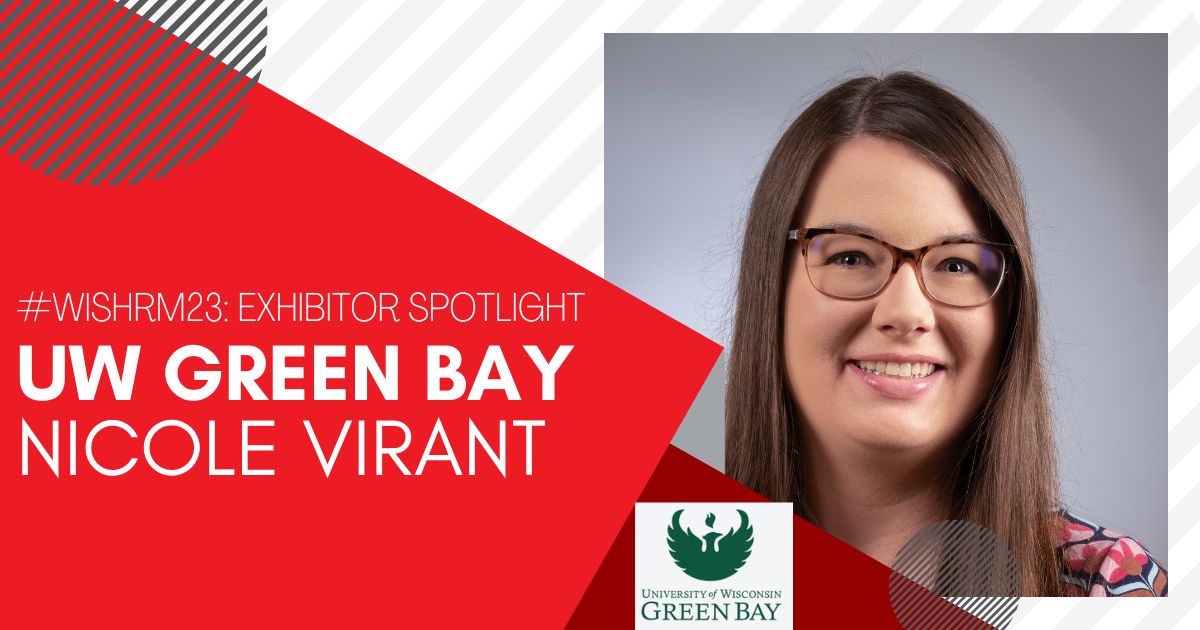
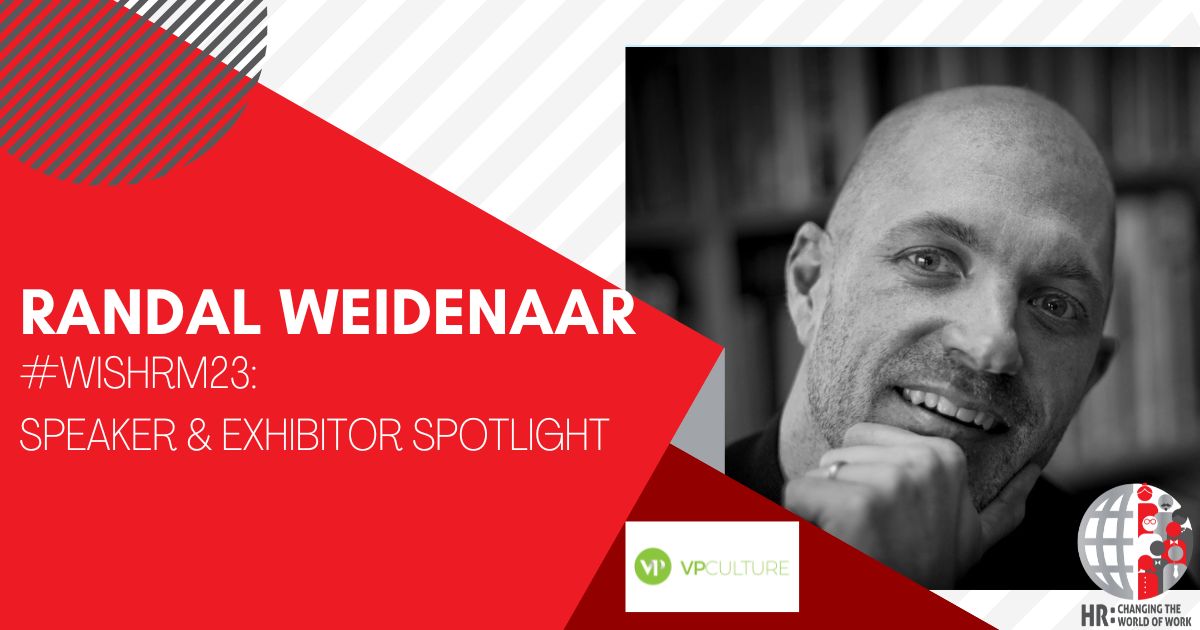
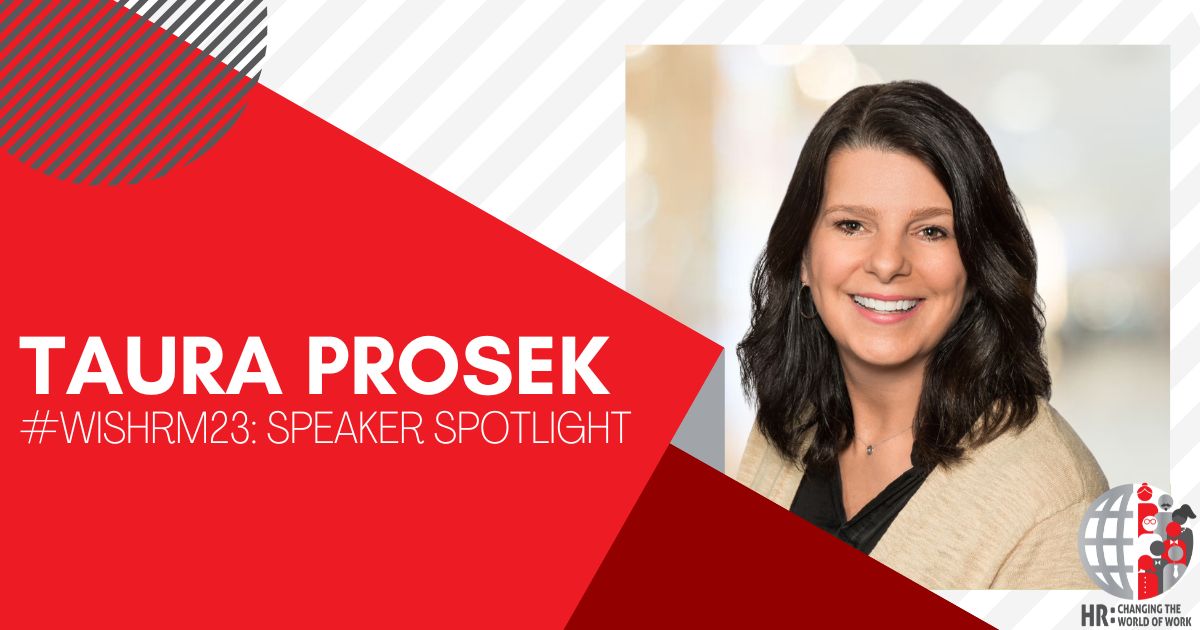
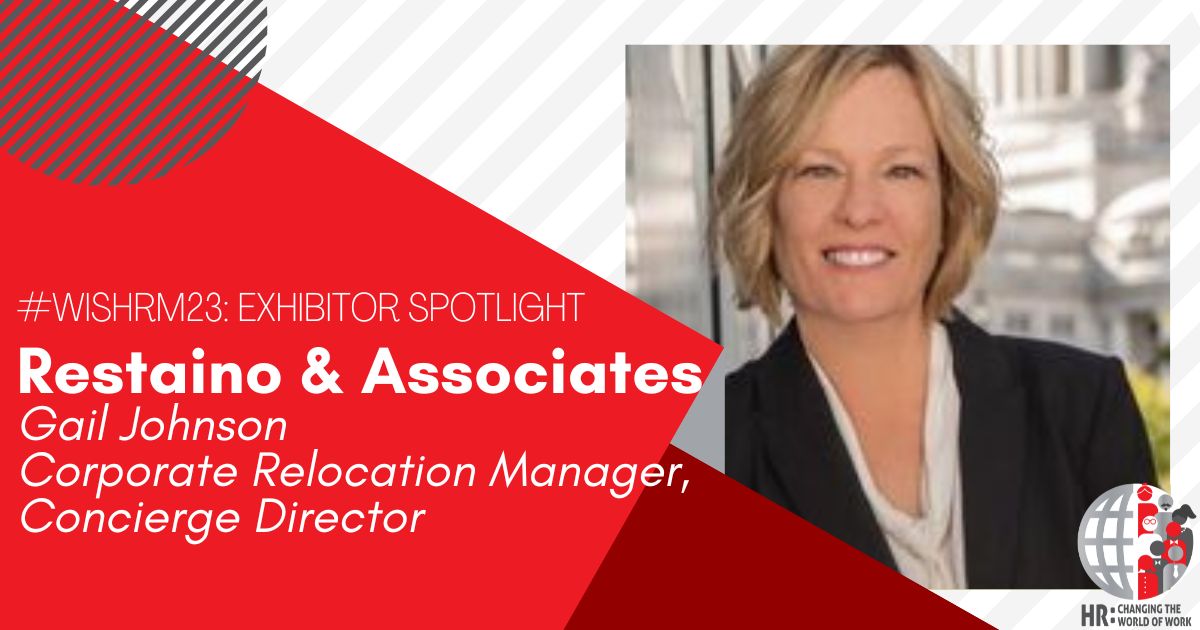

 RSS Feed
RSS Feed